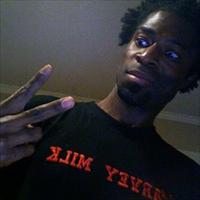GLOBAL: Looking in the mirror at HIV

It’s house music. It’s dinner, drinks and a movie. It’s first dates, first loves and first heart breaks. It’s being young - and it’s also about HIV, as a new global campaign against stigma aims to redefine the face of the virus.
“Does HIV look like me?” is run by a US-based organisation called Hope’s Voice International. Partnering with groups in countries such as Cambodia, South Africa and Swaziland, the campaign has chosen to use the faces of young people living with HIV – which it calls ambassadors - to challenge the stigma associated with the virus.
In each country, their photos will feature on posters alongside the campaign slogan.
Educating and empowering
Jason Wessenaar thought HIV happened to other people, until he was diagnosed positive while donating blood in 1999 at the age of 24.
“Back then, I didn’t think I could be touched by HIV,” said Wessenaar, who had been working as an AIDS activist at the time. “All of a sudden, my perspective changed, my focus changed, my dreams change, my vision of things changed because I was personally affected as compared to before when I was just a person trying to do good.”
According to Adam Garner of Hope’s Voice International partner International Planned Parenthood Federation, local partners taking ownership of the project was key to the campaign, adapting it to the cultural contexts in all six countries. “The epidemic is very different in all countries in the world in the way stigma manifests itself and in the way the virus is predominantly transmitted.”
Wessenaar, who works for the international health organisation Jhpiego, is one of South Africa’s 28 new ambassadors. Now in his 30s, he is slightly older than the global campaign’s usual faces, generally aged between 14 and 29.
He noted that in South Africa, stigma often meant people delayed disclosing. “My experience in South Africa is that few people [in the 14 to 29 year-old age bracket] are open about their status. At that age, they’re already dealing with a whole lot of other things and they don’t want to feel surrounded by HIV."
Sedumedi Soke, 23, just became a card-carrying member of the Treatment Action Campaign and is one of the youngest of the South African ambassadors. He was diagnosed HIV positive six months ago. After encouragement from his support group, Soke decided to disclose to his family; but the experience was shocking.
“It’s been very difficult because of the environment that I am in,” Soke explained. “There’s more than the virus, there are hate crimes, discrimination, stigma, people being labelled like they were the virus itself. It’s hard because HIV-positive people already have so much to deal with.”
But Soke said his experience as an ambassador has given him strength and that he hopes his image will say more than words can - providing young people like himself with a sense of hope for their future.
“I found that for the first time, I was looking at myself in the mirror and speaking openly to a broad group of people,” he said. “It helped me get back the confidence, hope and self-esteem I had lost.”
 Back and Next - Back and Next
Back and Next - Back and Next See Also - See Also
See Also - See Also